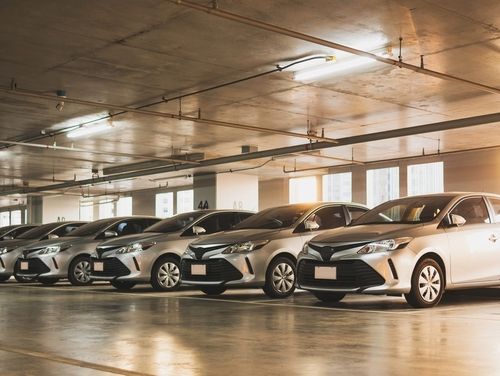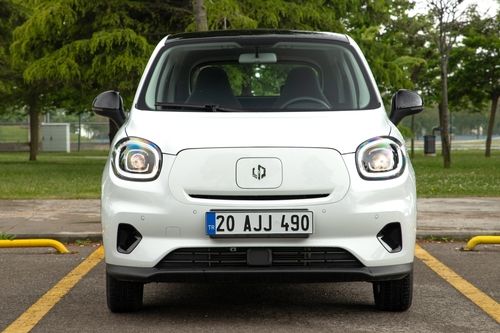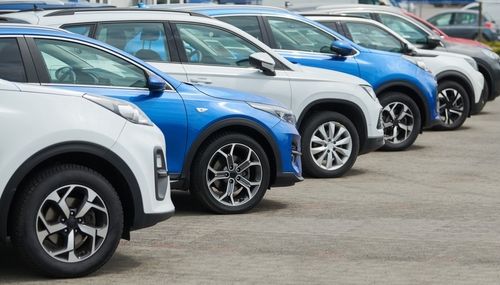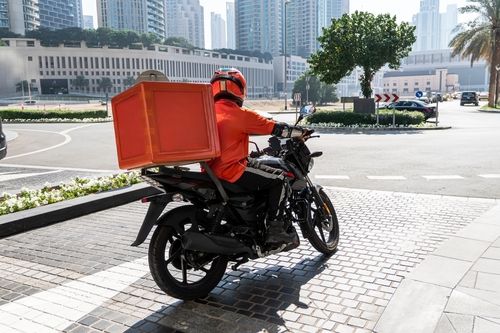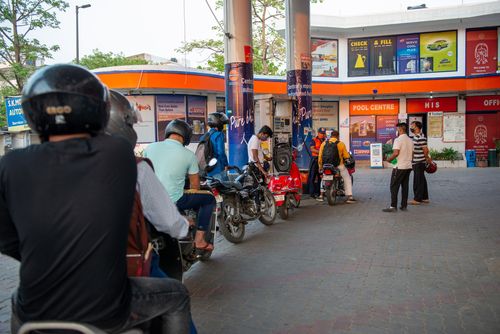What Is Motor Insurance? A Beginner's Guide
Written by Upstox Desk
Published on May 27, 2025 | 6 min read

Viraj was driving his 6-year-old car from the Pune-Mumbai highway, cruising around 90-100 km per hour. Suddenly, a group of stray animals appeared out of nowhere, and he had to apply the brakes at such a high speed. His car collided with a nearby barricade, but fortunately, he was not hurt during the collision. His vehicle, however, had a major bump, and the front was completely damaged. Viraj was not too worried about the expenses as he had recently renewed the motor insurance. However, when he called the insurance company’s helpline, he was informed that he opted for a ‘third party liability only’ insurance, not a comprehensive motor insurance. Viraj was confused, disappointed, anxious and in serious financial trouble due to a small oversight.
With one of the fastest-growing road networks and over 300 million registered vehicles, Indian roads are getting busier with every passing day. With the increase in traffic, new expressways, highways, road congestion, and overall lack of traffic sense among people, the risk of accidents, thefts, and unexpected repair bills has also increased drastically. This is where motor insurance becomes incredibly critical. This is not just a legal requirement per the Motor Vehicles Act, 1988, but a safety net which is extremely underrated and often not utilised to its full potential by the Indian vehicle owners.
For many first-time owners, the entire concept can be confusing. It is easy to be puzzled by the sheer number of options, categories and insurance companies in the market. This blog simplifies everything so you ultimately make an informed decision while buying a new or renewing your motor vehicle policy.
What is Motor Insurance?
It is a legal requirement per the Motor Vehicles Act, 1988, which mandates that every vehicle (personal or commercial) must have a valid motor insurance (at least third-party protection). A financial contract between the vehicle owner and the insurer protects your vehicle against losses due to accidents, theft, fire, natural disasters, or third-party liabilities.
Hence, in case of any mishaps or accidents, if you have a valid (and applicable) motor insurance, your insurance company will pay for repair costs and legal damages (if applicable).
Types of Motor Insurance in India
In India, insurance companies offer three categories of vehicle insurance. They are explained through the following table:
| Insurance Category | Coverage | Mandatory | Suited For |
|---|---|---|---|
| Third Party Insurance | Covers injury or death caused to a third party and damage to their property. Does not cover your own vehicle. | Mandated as per the Motor Vehicles Act, 1988. | For all vehicle owners; this is the minimum legal requirement to drive on Indian roads. |
| Comprehensive Insurance | Covers third-party liabilities and damages to your vehicle due to accidents, theft, fire, floods, or riots. | Not mandatory but highly recommended. | New car/bike owners, high-value vehicles, or anyone seeking full financial protection. |
| Standalone (Own Damage) Insurance | Covers only your vehicle’s damages from accidents, fire, natural disasters, or theft. Excludes third-party liabilities. | It is not mandatory, but should be bought with a third-party policy. | Those who already have third-party insurance and want to add their own vehicle protection. |
Key Features and Benefits of Motor Insurance
As mentioned before, motor insurance is quite a critical and often underrated financial protection tool. It is important to understand its features and benefits to choose the best variant and make the most out of it:
Financial Protection
Covers costs related to vehicle damage, theft, fire, accidents, and natural calamities.
Legal Compliance
At least a third-party insurance policy is legally required under the Motor Vehicles Act, 1988.
Coverage for Third-Party Liabilities
This policy protects you against legal and financial liabilities if your vehicle causes injury or damage to others.
Cashless Repairs
Access to a wide network of garages offering hassle-free, cashless repair services (depending on the insurer and the category of insurance opted for).
Add-On Flexibility
Offers optional covers like zero depreciation, roadside assistance, and engine protection for enhanced security (these are available only when opted for and increase the premium of your motor insurance policy).
Peace of Mind:
Reduces financial stress and protects you against unpredictable road risks.
Easy Renewals & Claims
Most insurers now offer online policy renewal and faster digital claim settlements.
How to Choose the Right Motor Insurance
As someone who cares about the vehicle (car or motorcycle) and the people around, it is highly recommended to go for a comprehensive motor insurance policy. A third-party liability only insurance is mandatory but provides limited coverage, especially in case of vehicle and self-damage.
Here are other factors that can help you in choosing the right motor insurance:
-
Coverage Type: We have already provided our recommendation on this. However, you need to decide between third-party, comprehensive, or standalone damage.
-
Insured Declared Value (IDV): Ensure the IDV reflects your vehicle’s market value, as it affects both the premium and the claim amount. IDV refers to the amount the insurance company would pay in case of total loss or damage to the vehicle. If it is higher, the premium should also be higher, and vice versa.
-
Premium Amount: Compare quotes, but don’t compromise on essential coverage.
-
Add-Ons: Look for useful add-ons like zero depreciation or roadside assistance.
-
Vehicle Usage: City cars vs highway travel and rural use have different risk levels.
-
Compare Online: Use digital platforms like Upstox to compare plans quickly and easily from leading motor insurance companies in India.
Final Tips to Users and Takeaways
Motor insurance is more than a mere mandatory regulation; it is a protection blanket that can save you major costs in an accident. As the overall driving risks have been constantly increasing, we recommend you go for a comprehensive motor vehicle insurance for your prized possession. However, always use online platforms like Upstox to compare policies, understand what's excluded, and avoid under-insuring just to save on premiums.
FAQs
-
What is the No Claim Bonus (NCB) in motor insurance?
NCB is a discount on your premium for every claim-free year. It can go up to 50% and is transferable even if you switch insurers.
-
Can I transfer my motor insurance to a new owner?
Yes, motor insurance can be transferred during vehicle resale. The buyer must inform the insurer and get the policy endorsement done within 14 days.
-
What documents are required to file a motor insurance claim?
You typically need your insurance policy, vehicle RC, FIR (if applicable), repair bills, and a filled claim form.
-
Is online motor insurance purchase valid and safe?
Yes, policies bought online are completely valid and often more convenient. Just ensure the insurer is IRDAI-registered.
-
What happens if I forget to renew my policy on time?
Your coverage lapses, and you may lose accumulated NCB. Driving with an expired policy is also legally punishable.
About Author
Upstox Desk
Upstox Desk
Team of expert writers dedicated to providing insightful and comprehensive coverage on stock markets, economic trends, commodities, business developments, and personal finance. With a passion for delivering valuable information, the team strives to keep readers informed about the latest trends and developments in the financial world.
Read more from UpstoxUpstox is a leading Indian financial services company that offers online trading and investment services in stocks, commodities, currencies, mutual funds, and more. Founded in 2009 and headquartered in Mumbai, Upstox is backed by prominent investors including Ratan Tata, Tiger Global, and Kalaari Capital. It operates under RKSV Securities and is registered with SEBI, NSE, BSE, and other regulatory bodies, ensuring secure and compliant trading experiences.


















